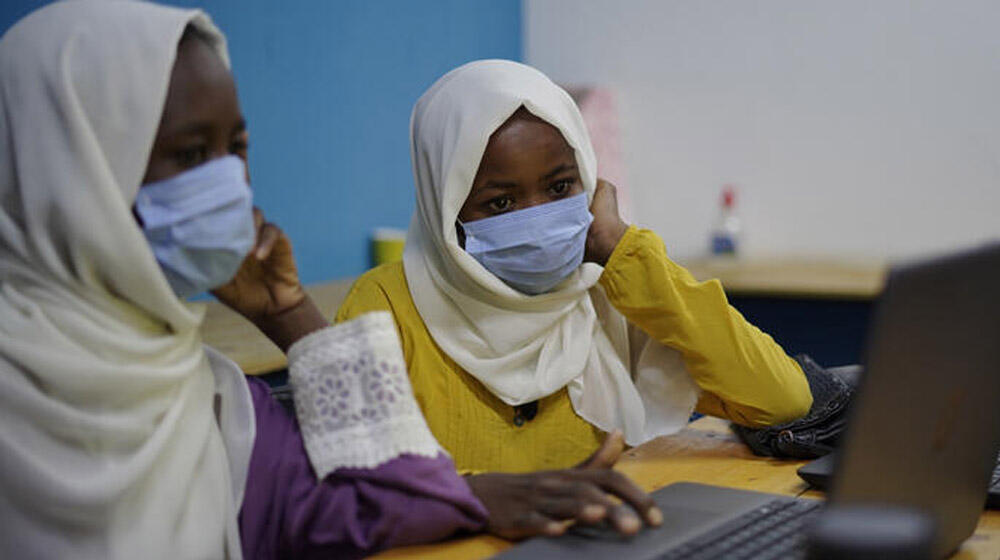EL FASHER, NORTH DARFUR, Sudan – At the ShareZone Centre filled with laptops and three technical instructors, aspiring coders Hajer, 18, and Eman, 25, see the results of their work: the words "Hello, World!" moving across their computer screens.
Last June, UNFPA launched Girls Who Code with the support of SIDA - the Swedish International Development Cooperation Agency as the first coding training programme dedicated to young women and girls in the state of North Darfur. The programme acts as a technology incubator where participants between the ages of 15 and 25 are trained to build, develop and strengthen information and communication technology skills. Since launch, two groups of 50 women and girls have completed their three-month training after being accepted into the popular programme by a selection committee.
"The training increased my understanding of computer programmes and helped me develop problem-solving skills and enhanced my analytical thinking," said Hajer. Fellow student Siham, 22, agrees: "I can now easily find alternative ways to solve problems in real life as in the coding world," she said. "It taught me patience and increased my confidence and passion for work."
Technology as a way to improve lives
North Darfur in the western part of Sudan has witnessed recurrent armed conflict, intercommunal violence and displacement over the last two decades, recently counting666,217 internally displaced persons and 322,710 returnees. Over half a million people are subject to gender-based violence -- the highest rate in Sudan -- and the number of reported cases is on the rise.
Girls Who Code provides women and girls with the technical skills not only to increase their job prospects but to develop applications (currently in preliminary stages) to help support survivors of gender-based violence and advance reproductive health and rights.
Through its training programmes, UNFPA intends to overcome existing technological gaps in Sudan, reduce the gender gap in the local and international technology arenas and work towards achieving the sustainable development goal on gender equality in an effort to leave no girl behind.
"We are excited about this project as it provides new tools for girls in Sudan to find innovative solutions to end some of their daily struggles," said Mohamed Lemine, UNFPA Representative in Sudan. "We will not miss a chance to support girls and innovation."
By introducing such opportunities in communities across Sudan -- future locations include elsewhere in the Darfur region and Khartoum state -- UNFPA is underscoring the capabilities and unlimited potential of young women and girls, not just on this International Day of Women and Girls in Science (11 February), but every day of the year.


